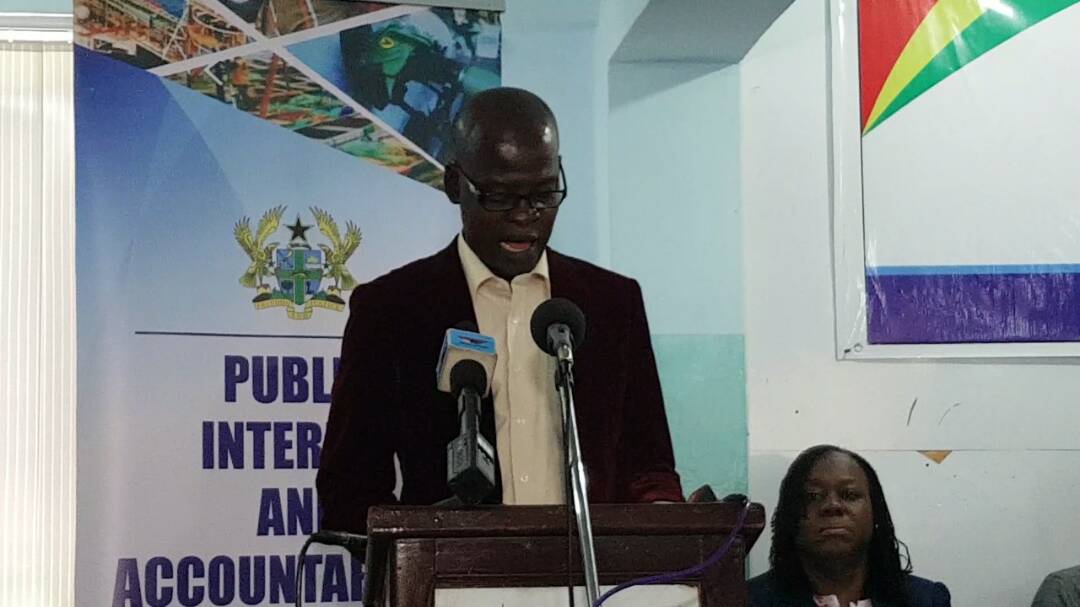Special topics
 While the Public Interest and Accountability Committee (PIAC) welcomes the intense public discussions around the findings and recommendations of its report on the inspection of petroleum-funded projects shared with Ghanaians at its Press Conference on Tuesday, 10 April, 2018, it regrets attempts by some individuals to cast doubt on the integrity of the report in question.
While the Public Interest and Accountability Committee (PIAC) welcomes the intense public discussions around the findings and recommendations of its report on the inspection of petroleum-funded projects shared with Ghanaians at its Press Conference on Tuesday, 10 April, 2018, it regrets attempts by some individuals to cast doubt on the integrity of the report in question.
PIAC is particularly concerned about a statement circulating on social media, and attributed to Hon. John Jinapor, former Deputy Minister for Power, and MP for Yapei/Kusawgu.
The Committee would have ordinarily let the statement pass without comment but for the fact that it is laced with several misrepresentations of the facts as contained in the report.
For the avoidance of doubt, we wish to respond to the statement and to clarify the facts as follows:
1. The suggestion that PIAC in its report has ‘’twisted the facts to serve political parochial interest’’ is most unfair and without basis given that the government under which Hon. John Jinapor served, was afforded the opportunity to respond to the said findings in a letter to the Minister of Finance dated 4 August, 2016. The Minister chose not to respond to the letter. As a public oversight body, we would not have fully served our purpose if we left the matter hanging, hence our decision to refer our findings to the Auditor General for audit investigations. All we have sought to do with our press conference is to inform Ghanaians in whose name and on whose behalf we act, what steps we are taking to ensure accountability in the management and use of petroleum revenues.
2. Our report does not suggest in any way that 50% of ALL petroleum revenue-funded projects are missing as Hon. Jinapor contends, but rather 50% of the projects inspected in the Upper East, Upper West, and Northern Regions.
3. Hon. Jinapor argues in his statement that ‘’from the 2017 budget presented by the Finance Minister, total petroleum receipts in 2016 was 49.2% below target and the budget report confirms an amount of GHȻ711.1 million realised against a budget target of GHȻ1,400.8 million’’. Contextually, this assertion is completely misplaced. All the six (6) projects inspected in the three regions were projects allocated petroleum revenue in 2014. It was the inspection of the projects which was carried out by PIAC in 2016. PIAC is therefore at a loss as to the relevance of the 2017 budget he refers to in his statement.
4. PIAC’s data requisition from the Ministry of Finance is on projects funded with petroleum revenues, and NOT PLANNED projects. Thus, the contention by the Hon. MP that the Government did not realise its projected petroleum revenues is as noted, completely misplaced. Moreover, assuming that petroleum receipts have any relevance at all to the matter at hand, which is not the case here, it was in 2014 that the government recorded the highest receipts of petroleum revenue.
5. It appears from Hon. Jinapor’s statement that he is confusing the PIAC statutory report of 2016 on the management and use of petroleum revenues with the project inspection exercise carried out in 2016 as part of the implementation of its 2016 Annual Workplan. Even though we have shared copies of the project inspection report with the Finance Committee of Parliament this week, we have shared with Hon. Jinapor this morning a personal copy in the hope that it will help clear his misconceptions.
PIAC would want to encourage citizens to show interest in how petroleum revenue, our common heritage, is being used to address our development needs and would urge government to take note and act in accordance with the wishes and aspirations of the people whose interests it represents.
The Chairman